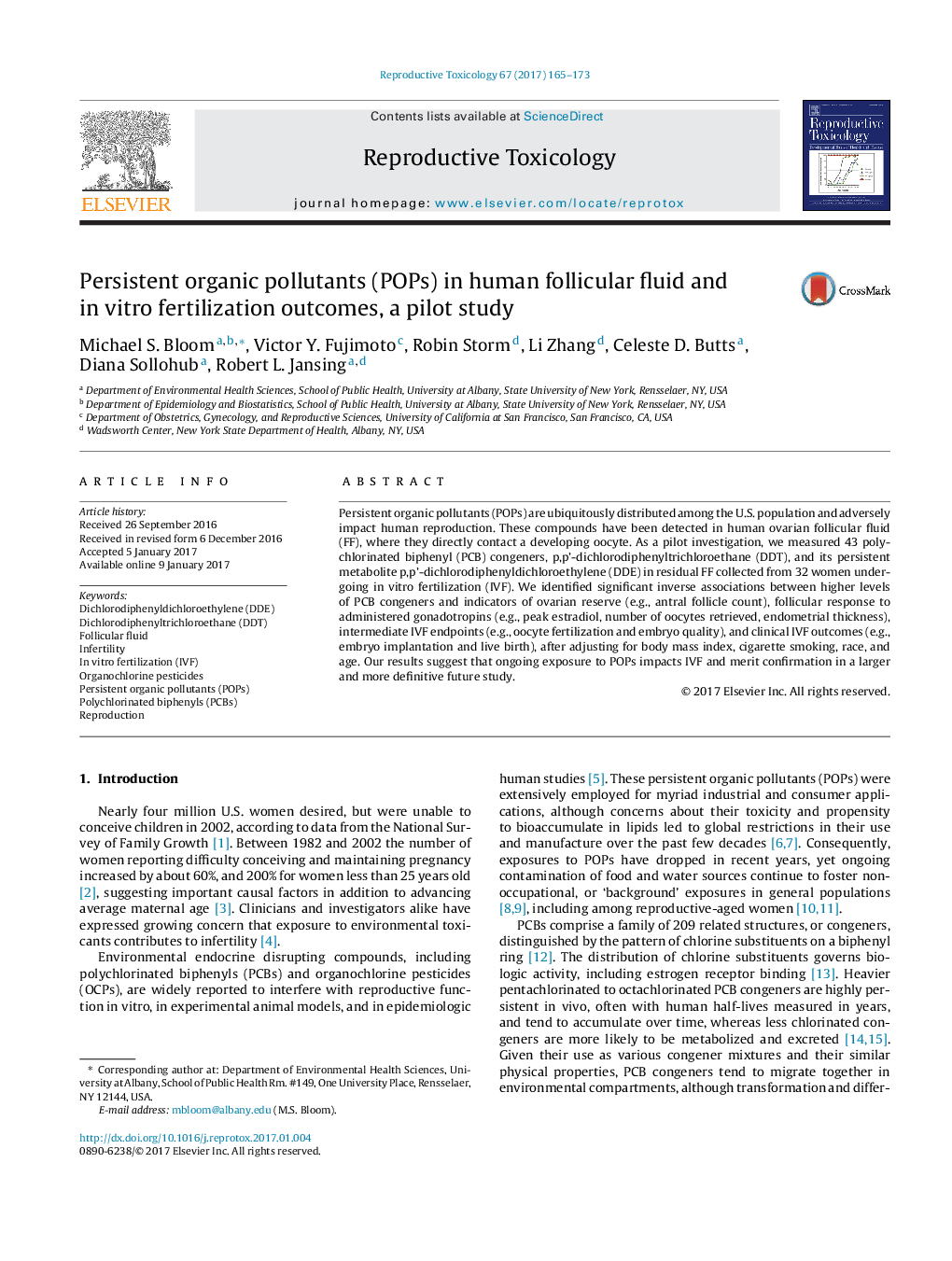| کد مقاله | کد نشریه | سال انتشار | مقاله انگلیسی | نسخه تمام متن |
|---|---|---|---|---|
| 5561674 | 1562152 | 2017 | 9 صفحه PDF | دانلود رایگان |

- We collected follicular fluid from 32 women undergoing in vitro fertilization.
- We measured 43 PCB congeners, DDT, and DDE in follicular fluid specimens.
- Heavier PCBs were associated with poorer ovarian reserve and follicular response.
- Lighter PCBs were associated with oocyte quality, embryo quality, and live birth.
- Even at low concentrations, PCBs, DDT, and DDE may impact in vitro fertilization.
Persistent organic pollutants (POPs) are ubiquitously distributed among the U.S. population and adversely impact human reproduction. These compounds have been detected in human ovarian follicular fluid (FF), where they directly contact a developing oocyte. As a pilot investigation, we measured 43 polychlorinated biphenyl (PCB) congeners, p,p'-dichlorodiphenyltrichloroethane (DDT), and its persistent metabolite p,p'-dichlorodiphenyldichloroethylene (DDE) in residual FF collected from 32 women undergoing in vitro fertilization (IVF). We identified significant inverse associations between higher levels of PCB congeners and indicators of ovarian reserve (e.g., antral follicle count), follicular response to administered gonadotropins (e.g., peak estradiol, number of oocytes retrieved, endometrial thickness), intermediate IVF endpoints (e.g., oocyte fertilization and embryo quality), and clinical IVF outcomes (e.g., embryo implantation and live birth), after adjusting for body mass index, cigarette smoking, race, and age. Our results suggest that ongoing exposure to POPs impacts IVF and merit confirmation in a larger and more definitive future study.
Journal: Reproductive Toxicology - Volume 67, January 2017, Pages 165-173